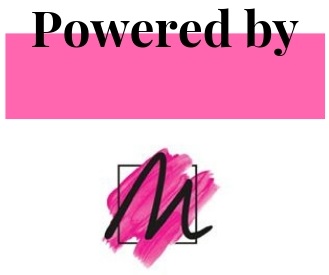To the surprise of very few fans of NBC’s “The Voice,” Chloe Kohanski was crowned the winner of Season 13 on Tuesday night. Not only did the 23-year-old psychedelic rocker from Nashville dominate the iTunes charts with her performances after almost every episode, but the celebrity coaches deemed her a front-runner the first time they heard her sing.
“I think that you can be in the finale,” Blake Shelton declared at Kohanski’s blind audition in October, when she wowed everyone with Fleetwood Mac’s “The Chain.” Indeed, she went on to triumph over the other acts in the final four, which included teenage folk prodigy Addison Agen, pop-soul powerhouse Brooke Simpson and country crooner Red Marlow. Kohanski, who previously worked at a coffee shop as she embarked on a solo career, now has a recording contract with Universal Music Group.
However, things almost went very differently – because Kohanski could have been eliminated early on when she was dropped by her coach, Miley Cyrus, during the “knockout” round. Luckily, thanks to a special rule added in the fifth season, the other coaches get one shot to “steal” the artist who loses the knockout. Shelton and Jennifer Hudson both swooped in to offer Kohanski a spot on their teams, and Kohanski chose Shelton.
Cyrus, back as a coach for the second time on “The Voice,” was determined to win with one of her artists, particularly over Shelton, who has now won six times. So Kohanski’s victory really twists the knife. Why did Cyrus make such a big mistake and let the clear front-runner go?
You can actually trace it back to the season premiere in September, when Cyrus declared her true goal for the season: Discover a country music star. “I’m here to win ‘The Voice’ with a country artist,” Cyrus announced, as she tried to persuade Marlow, a 40-year-old Tennessean who called himself “country as corn bread,” to join her team.
Cyrus doubled down on her country roots this season, reminding everyone about her residence in Nashville and legacy status as “Achy Breaky Heart” singer Billy Ray Cyrus’ daughter. There are a few possible reasons for this: First, to get under Shelton’s skin for the sake of drama on the show. (Country contestants, such as Marlow, obviously flock to Shelton.) Second, “Voice” winners who seek careers in Nashville tend to have more success than their peers in other genres.
Third, and perhaps most importantly, Miley Cyrus – the goddaughter of Dolly Parton – has signaled she wants to be taken more seriously by the country music community. She feels those fans abandoned her in her pop star days, when she twerked with Robin Thicke and was naked on a wrecking ball. Her latest album, “Younger Now,” leans more into the singer-songwriter realm. “The fact that country music fans are scared of me, that hurts me,” Cyrus told Billboard this year.
Anyway, Cyrus was initially thrilled to have Kohanski on her team. During the blind auditions, she made a convincing argument about how they had similar taste in music. “I’m obsessed with Miley,” Kohanski gushed, choosing Cyrus over Shelton and Hudson, who also spun their chairs around.
Then came the knockout round, in which coaches choose two of their singers to compete against each other and then send one home. On Oct. 30, Cyrus paired Kohanski against Ashland Craft, a talented 21-year-old country singer from South Carolina. After her blind audition, Cyrus successfully persuaded Craft to join her team, saying she wanted to turn her into a “punk rock Dolly Parton.”
“Blake really is the king of country, that’s for sure, but they need a queen,” Cyrus said. “And I would hope that would be me.”
In the knockout, Kohanski sang a stunning version of Fleetwood Mac’s “Landslide,” while Craft belted out an excellent twist on Bon Jovi’s “Wanted Dead or Alive.” Cyrus fretted over whom to choose, but her preference seemed obvious in rehearsals when she told Craft, “You could be the female Chris Stapleton.” Considering Stapleton’s critical acclaim and sales figures, that’s as high a compliment as you can get in Nashville. Cyrus clearly already had visions of Craft’s country stardom.
“Chloe did an amazing, amazing job. You are so talented,” Cyrus said. “I just have to go with my gut, and the winner of this knockout is Ashland.” Within seconds, Shelton and Hudson pounced, and pleaded to steal Kohanski.
“I just think you have such a beautiful message to be able to share. I really do think you could win,” Hudson said.
“I have wanted you on my team every single time you’ve set foot on that stage,” Shelton said. “There’s nothing that can compete on this show with an artist who knows exactly who they are.”
Kohanski went with Shelton, who called her “the most iconic voice we’ve ever had on this show.” With a firm grasp on her artistic identity, Kohanski knocked her performances out of the park every week. Her psych-rock spin on ’80s songs in particular (“Time After Time,” “Total Eclipse of the Heart,” “Call Me”) struck a chord with viewers, and she constantly received iTunes bonuses for her songs making it in the Top 10 on the charts.
Incidentally, Kohanski’s cover of “Landslide” – the song that almost got her eliminated by Cyrus – broke a record for the highest-charting song from the knockout rounds in “Voice” history. If Cyrus hadn’t been so preoccupied with her country music goals, perhaps she would have chosen differently. (Though to her credit, Craft made it all the way to the Top 10 before being voted out by viewers.)
Shelton, meanwhile, always seemed to treat Kohanski as his priority; even over Marlow, his other singer in the final four.
“I have been sitting in this seat for 13 seasons and I have never heard a more well-rounded voice than that right there,” Shelton told Kohanski at one point. “I’ll be damned if you’re not a star, Chloe.”




